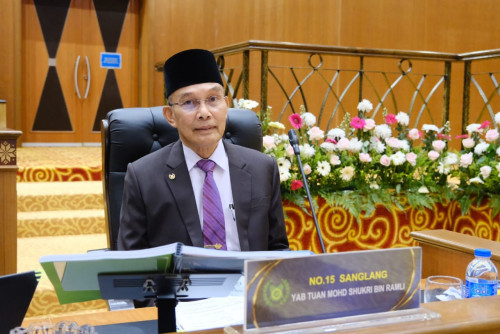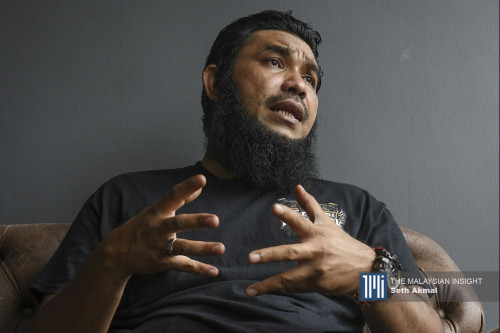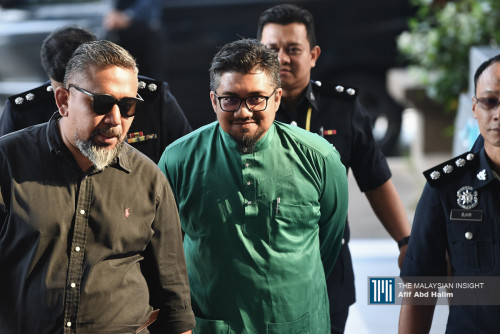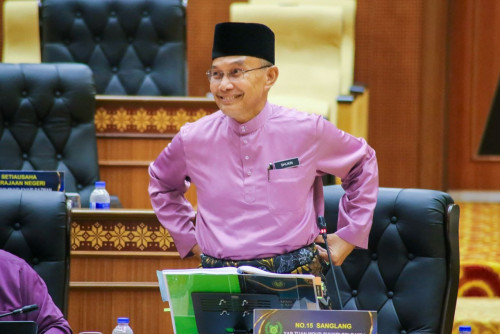SINCE 1949, the month of May has been designated as Mental Health Awareness Month. Established in the United States by Mental Health America (MHA), the month-long initiative is dedicated to raising awareness and educating the masses on mental illness.
While it is important to know the different types of mental illness in existence, it is also crucial that we acknowledge the people who help us to manage and work through these illnesses. One such party that contributes significantly to maintaining and caring for the mental health of athletes are sports psychologists.
Since their importance is often overlooked, The Vibes recently spoke to the dean of the sports science and recreation faculty of Universiti Teknologi Mara (UiTM), Professor Dr. Mohad Anizu Mohd Nor, to highlight the role of a sports psychologist in conjunction with Mental Health Awareness Month.
For the uninformed, a sports psychologist is a medical professional who employs psychological knowledge and skills to optimise the well-being and performance of athletes.
Before we delve deeper, let us first understand the difference between a sports psychologist and a general psychologist.
Prof Dr. Anizu explains that while the latter focuses on matters relating to mental health and how we cope with issues in our daily lives, sports psychologists specialise in elevating an athlete’s performance.
“We concentrate on how psychological factors can help and influence an athlete’s performance; covering areas like motivation, mental tougness, focus, attention and concentration as well as how to deal with anxiety. This is crucial for athletes, especially before and during a competition.”
Even with such a clear distinction between the two, why is a sports psychologist necessary, and why wouldn’t a general psychologist suffice?
Although a sports psychologist would have had prior training as a general psychologist, both disciplines require completely different skill sets.
“Although both practitioners are well-versed in the general principles of psychology, sports psychologists specifically learn how to motivate athletes and help them to set goals with self- visualisation practices. It’s an add-on to their set of existing skills,” shared Prof Dr. Anizu.
Now that we understand what a sports psychologist can do, who, specifically, requires their services?
While a sports psychologist’s main responsibilities centre around the well-being of the athletes, they also serve as liaison officers with their respective management teams.
“Since sports psychologists work closely with athletes and provide a support system that helps them perform better, they become the mediating party between the athlete and management if and when problems arise,” said Prof Dr. Anizu, who adds that it would be ideal for teams to have their own full-time sports psychologist.
“As far as I’m concerned, there aren't a lot of sports psychologists in Malaysia. Although the National Sports Institute (NSI) has a sports psychology department, they only have a handful of psychologists to cater to the numerous national teams. As most athletes only start working with a sports psychologist three months before a competition, there really isn’t enough time for that psychologist to fully understand the team or their individual needs.”
However, would every team need a sports psychologist?
As there are different levels in sports ─ recreational, state, and national ─ a sports psychologist would serve a different purpose at each level.
“At the recreational level, a sports psychologist would be guiding the fitness needs of their clients. They would focus more on planning, educating and encouraging,” shared Prof Dr. Anizu.
“Although for state- and national-level athletes, the focus may be similar but the intensity will be less at the state level compared to the national and international levels, where competition is high. Therefore, it wouldn’t be detrimental if they didn’t have a full-time sports psychologist on the team.
“Yet, at the national level, each team must have a full-time sports psychologist on board. These athletes will require adequate support, especially when expectations are high. At this level, sports psychologists will implement Psychological Skill Training (PST), which includes goal setting, imagery techniques, visualisation, relaxation and positive self-thought.”
Although sports psychology might be a niche field in Malaysia, it’s importance cannot be understated as it helps our athletes elevate their performance to a higher standard. ─ The Vibes, 20 May 2021




.jpg)








.jpg)


